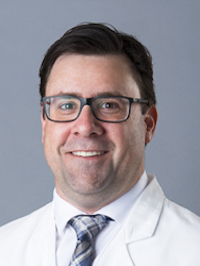The Wellness Report – May 2022
Lessons from the Pandemic: Time to innovate
The COVID pandemic changed the practice of medicine in ways we did not envision. Worsening access to care, lack of inpatient beds, the “Great Resignation,” etc. Although it has been quite difficult to manage our three missions (clinical, education, research), I have changed my attitude towards the pandemic, and interpreted it as a perfect time to innovate and question “the way we have always done things.” I express here my own lessons.
-

Jorge L. Almodóvar-Suárez, MD Do I have to do the full exam every single time? Telemedicine has shown me that there is a significant population of patients that can get the same care in-person with a full exam, or with a counseling telemedicine visit.
- Do patients have to come for an in-person visit for every urgent matter? I have become more aware of managing urgent questions and concerns with a few MyChart messages.
- Do I have to spend extended periods of time with patients? Although it is part of our usual routine and practice to ask many questions, I have become adept at focusing complaints and splitting multiple complaints and workups over several visits.
- Do we need to follow up every patient? I am more comfortable sending patients back to PCP or primary neurologist with recommendations.
- Can our APPs follow my patients? I have built great relationships of trust with APPs working with me, whom I consider team-mates, colleagues and integral to my success as a physician who provides quality care.
- Does every meeting need to be in person? Teleconference services are so accessible now that I am much more efficient than I was previously.
- What about isolation? This is the one I have struggled with most. Thankfully, we are having glimmers of hope in between COVID peaks. Participating in “scholarly citizenship” within our institutions has been very helpful (Ethics Committee, Admissions Committee, etc).
- What about administrative or clinical mistakes? I have become much more tolerant of misses in scheduling or delays in rooming. I am empathetic to the fact our staff is stretched to the limit and rather than take mistakes as a personal or professional slight, I use them as a learning and exciting problem-solving opportunity.
All I can say is that, at the end of the day, we have full control of how we manage our time in clinic and outside of clinic, within the artificial framework of the Epic templates.
My challenge to all of you is to:
Change the way you do things. Eliminate the reflexive “I’ve always done it like this” approach. Be innovative, be happy, be cool, be friendly, be flexible, be tolerant and more important, ask your colleagues how they approach problems, and integrate into your own practice.
Regards to all,
Jorge
Jorge L. Almodóvar Suárez, MD
Associate Professor, Department of Neurology
Chief, General Neurology & Headaches Division
Director, ALS Clinic
